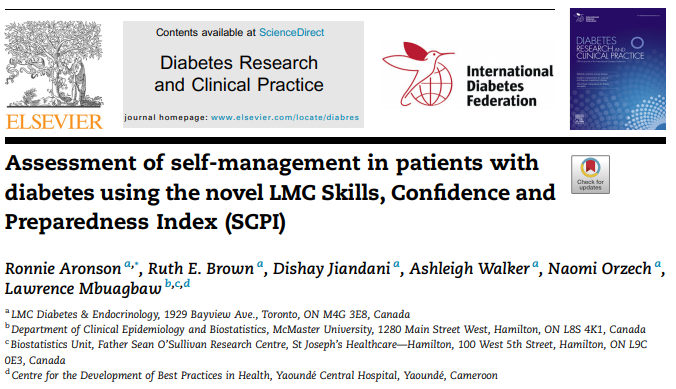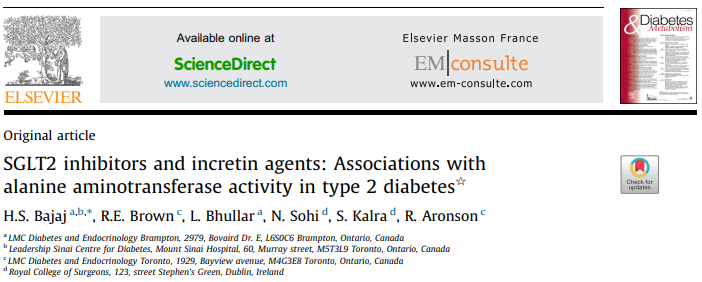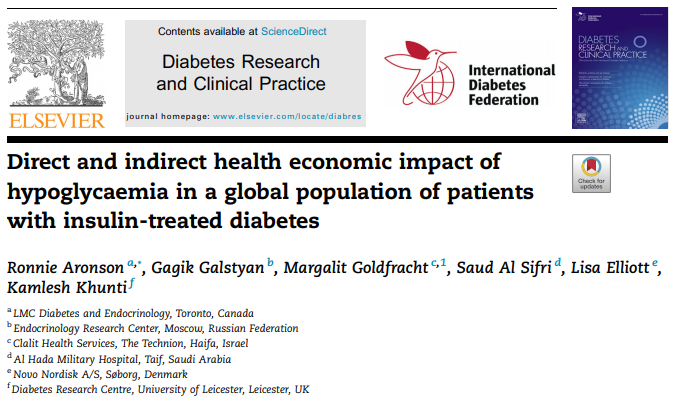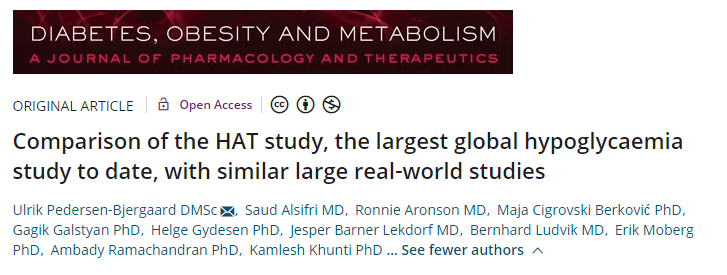Assessment of self-management in patients with diabetes using the novel LMC skills, confidence and preparedness index (SCPI)
The SCPI (Skills, Confidence, and Preparedness Index) is an electronic tool that is designed to asses knowledge, confidence and preparedness of diabetes self-management. This study looked at the SCPI in a large sample of adults with type 1 diabetes and type 2 diabetes, and the tools clinical relevance to glycemia.
Assessment of self-management in patients with diabetes using the novel LMC Skills, Confidence and Preparedness Index (SCPI)

SGLT2 inhibitors and incretin agents: Associations with alanine aminotransferase activity in type 2 diabetes

Reports on the effectiveness of new classes of glucose lowering medications on markers of non-alcoholic fatty liver disease (NAFLD) in type 2 diabetes (T2D) has been inconsistent. This large retrospective study examines changes in ALT (alanine aminotransferase) levels for individuals initiating newer classes of T2D medications (SGLT2 inhibitors, GLP-1 receptor agonists and DPP-4 inhibitors) in comparison to a control group.
SGLT2 inhibitors and incretin agents: Associations with alanine aminotransferase activity in type 2 diabetes
Direct and indirect health economic impact of hypoglycemia in a global population on patients with insulin-treated diabetes
This study investigated the health economic impact of hypoglycaemic events within 24 countries, including those without previously published date on hypoglycaemia. The LMC patient population provided all the hypoglycemia data for the Canadian representation in the global sample and innovated an electronic tool to allow patients to report their hypoglycemia anonymously.
Direct and indirect health economic impact of hypoglycaemia in a global population of patients with insulin-treated diabetes

Comparison of the HAT study, the largest global hypoglycemia study to date, with similar large real-world studies

The Hypoglycaemia Assessment Tool (HAT) study, is a non-interventional real-world study of hypoglycaemia. It examined 27,585 individuals across 24 countries. This study compared the incidence of hypoglycaemia from the HAT study to other large, similarly designed, real-world studies.
Comparison of the HAT study, the largest global hypoglycaemia study to date, with similar large real‐world studies
